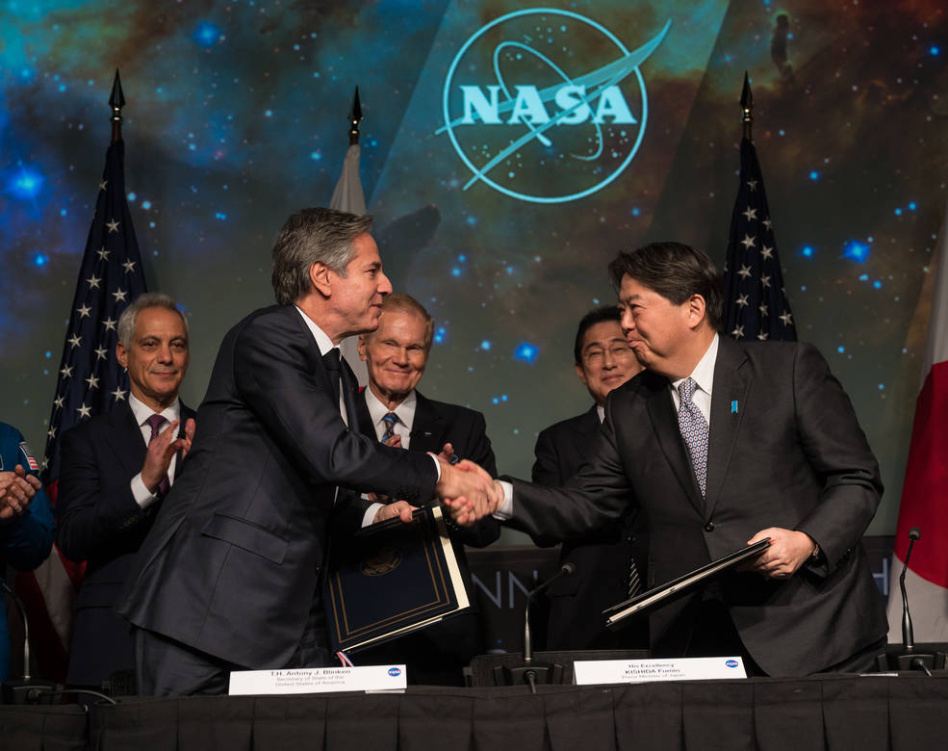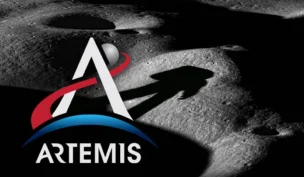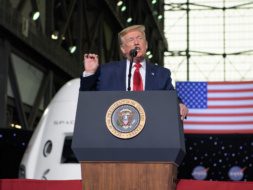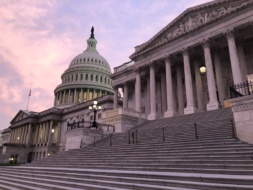The State Department released its first Strategic Framework for Space Diplomacy today, proving that diplomacy in orbit has become a reality much sooner than Futurama would have had us believe.
The framework: The document highlights how the State Department will advance US leadership in orbit on priorities like establishing norms of behavior, as well as expand international cooperation on programs like the Artemis Accords.
“The Strategic Framework provides a critical foundation for our work, grounded in US strategic objectives and values,” Secretary of State Antony Blinken said. “We are committed to expanding space benefits for all humankind by engaging allies and partners who share our democratic values of openness, transparency, adaptability, and the free flow of ideas and information.”
The framework is separated into three main areas: promoting diplomacy in orbit, using space activities for broader diplomatic goals on Earth, and giving State employees a “modernized skill set of tools and knowledge” to pursue space diplomacy.
Closing the gap
Duke University founded its Space Diplomacy Lab in January 2022 to do just that. The lab’s goal is to help prepare the next generation of space experts to understand the importance of diplomacy in orbit amid the rapidly changing landscape, and to drive conversation about important topics for the international community, such as setting norms of behavior.
“There’s really a gap between where the space industry is operating now and where it was when the folks currently working in and leading the space industry were in their formative years,” said Benjamin Schmitt, senior fellow at the University of Pennsylvania and cofounder of Duke’s Space Diplomacy Lab.
“Academic instruction needs to keep pace with the current dynamics of the global space economy to make sure students from a wide variety of fields are ready to engage with…the commercial space sector when they enter the workforce,” he continued. “Students are clamoring for course work in space policy and space economics, and it’s time for academic programs to meet the moment.”
The lab’s past year: One month after the lab was established, Russia invaded Ukraine and space was immediately at the forefront, with commercial imaging satellites giving the public an unprecedented peek at the front lines. The lab spent much of its first year examining questions about space that were raised by the invasion, such as whether pictures collected by commercial sats could be used as evidence in trials for war crimes, or how satellites could help monitor supply chains and food insecurity, Schmitt said.
What’s next? In its second year, the lab will focus on the growing access to open source intelligence and imagery, as well as continuing to push for a Global Summit for Space Security. Giovanni Zanalda, a Duke professor and cofounder of the Space Diplomacy Lab, is also preparing to teach a new course on space economics in the Fall, which he said filled up within about 20 minutes.
“In the beginning, I wouldn’t say there was skepticism in general, but being a new concept, there was among some people,” Zanalda said. “Now there is interest in our institutions as well as outside. We also have quite a few students approaching us to collaborate with us. We go from first year undergraduates to grad students from different fields: engineering, physics, public policy, economics, and health. It’s really exciting.”
A seat at the table
Before the establishment of the Space Force, space often seemed to be on the sidelines of national security debates. Space operators had to make an effort to get buy-in from troops across the services, making the case that targeting data, GPS, and many other critical technologies all stemmed from the domain.
Last year, the American Foreign Service Association’s journal ran an article calling for a similar reckoning at the State Department, arguing that a career in foreign affairs will “increasingly demand proficiency in the language of space.”
Schmitt agreed, arguing that the growing importance of the domain should make it mandatory for space experts to be at the table when decisions are being debated.
“Having a technical background and bringing that into the diplomatic space is very important, but it remains vital for non-technical experts from international relations, foreign policy, and the diplomatic community to also have a recognition that space is truly core to a wide array of areas throughout national security and economic diplomacy,” he said.




